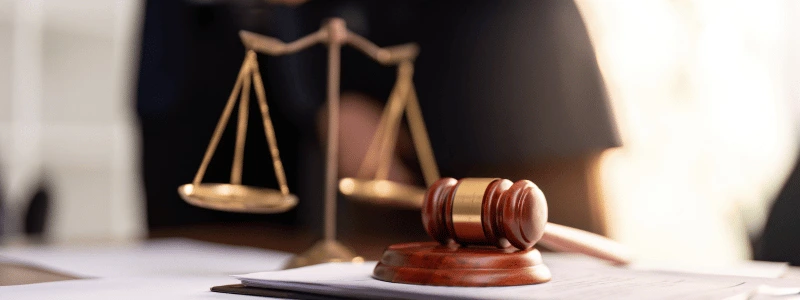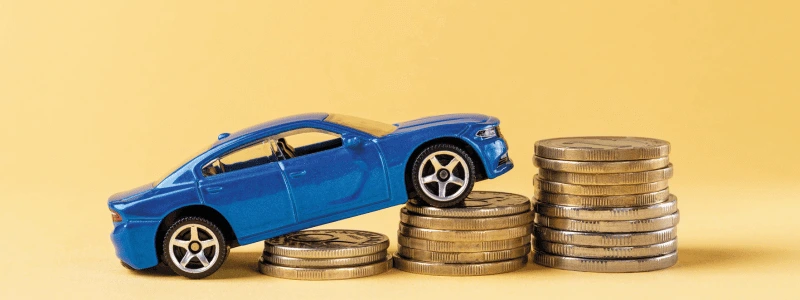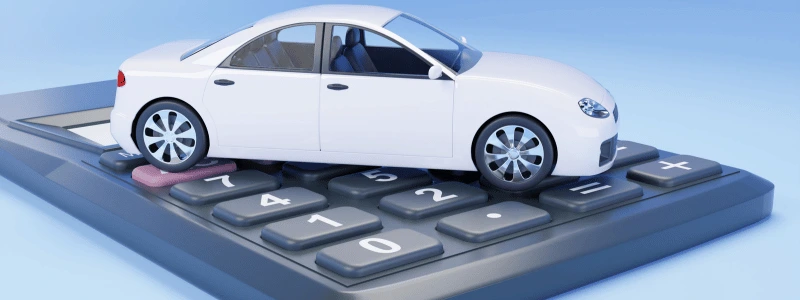No — you cannot legally sell a car on finance in Ireland until you’ve cleared the outstanding loan. Under Irish Hire Purchase law, the lender is the legal owner until your finance is fully repaid. Ask for a settlement figure, pay it, get written confirmation of ownership release, then transfer the vehicle.
At a Glance – Summary
✅ You can’t sell a car in Ireland if it’s still on finance.
✅ Ask for a settlement figure and clear the loan first.
✅ The lender owns the car under HP and PCP until full payment.
✅ Once cleared, you can sell privately or to a dealer.

Who Legally Owns a Car on Finance in Ireland?
When you buy a car on finance in Ireland, the lender usually owns the car until you’ve made all your payments. Under Hire Purchase or PCP agreements, you’re the registered keeper, but not the legal owner, until the finance is fully settled and ownership is transferred to you.
The Difference Between Hire Purchase, PCP and Personal Loans
The three main types of car finance in Ireland — Hire Purchase (HP), Personal Contract Purchase (PCP), and Personal Loans — differ mainly in who owns the car and when.
With HP and PCP, the lender owns the car until you make the final payment, while with a personal loan, you own the car from day one. Each option has fixed payments and an optional deposit, but the end-of-term choices differ:
| HP | PCP | Personal Loan | |
| Optional deposit | ✅ | ✅ | ✅ |
| Who owns the car during the term? | Lender | Lender | You |
| End-of-agreement options | You own the car after final payment | Pay the balloon to own it, trade in, or hand back | You already own the car |
| Fixed monthly payments | ✅ | ✅ | ✅ |
| Mileage limits | ❌ | ❌ | ❌ |
| Vehicle support | ✅ | ✅ | ✅ |
Why Ownership Matters When Selling
Ownership matters because you can only sell a car if you’re the legal owner. Under Hire Purchase or PCP finance in Ireland, the lender owns the car until you’ve made all repayments. Until then, you can’t legally sell or transfer it. Once the finance is cleared, ownership passes to you.
Registered Keeper vs Legal Owner — What’s the Difference?
You might have heard the terms registered keeper and legal owner, but they mean different things.
The registered keeper is the person responsible for the car’s day-to-day use and appears on the V5C logbook.
The legal owner is the person or company that actually owns the vehicle.
If you buy a car on Hire Purchase or PCP, you’ll be the registered keeper while the lender remains the legal owner until the finance is fully paid. Once the agreement is settled, ownership transfers to you.

Is It Legal to Sell a Car With Outstanding Finance?
No, it is not legal to sell a car with outstanding finance in Ireland.
Under a Hire Purchase (HP) or Personal Contract Purchase (PCP) agreement, the lender is the legal owner until the finance is fully repaid.
You cannot legally sell or transfer the car until you’ve requested a settlement figure, made all repayments, and the lender has confirmed that ownership has transferred to you.
The Legal Position Under Irish Hire Purchase Law
Under Irish Hire Purchase law, you cannot legally sell a car on finance until the agreement has been paid off.
According to Citizens Information, “you cannot legally sell the item until the agreement has been paid off.” (Citizens Information).
This is because, during a Hire Purchase (HP) or Personal Contract Purchase (PCP) (a type of HP offering) agreement, the lender remains the legal owner of the vehicle until all repayments are complete and ownership transfers to you.
What Happens if you Sell a Financed Car Without Permission
If you sell a car with outstanding finance in Ireland without the lender’s permission, it is considered a breach of your Hire Purchase or PCP agreement.
Because you are not the legal owner, the lender can repossess the vehicle.
You may also be required to repay the money you received from the sale, and your credit score could be negatively affected due to the contract breach and missed payments.

How to Sell a Car That’s Still on Finance
If you want to sell a car that’s still on finance in Ireland, you’ll first need to gain full legal ownership from your lender.
Here’s how to do it safely and legally:
- Contact your lender and request a settlement figure — the amount needed to close your Hire Purchase or PCP agreement.
- Compare your car’s market value with what you owe to decide if selling makes financial sense.
- Repay the outstanding finance to your lender and confirm that ownership has been transferred to you.
- Complete the sale privately or through a dealer once the car is fully yours.
Step 1 – Get Your Settlement Figure
The first step is to request a settlement figure from your lender.
This shows how much you still owe to close your Hire Purchase (HP) or Personal Contract Purchase (PCP) agreement.
Once you’ve received the figure, you’ll know exactly what’s required to gain full ownership of the car.
Step 2 – Compare Your Car’s Value to What You Owe
Next, compare your car’s market value with your outstanding finance balance.
If the car is worth more than you owe, you’re in positive equity — you can use that difference toward your next vehicle.
If it’s worth less, you’re in negative equity, which means you may need to pay the shortfall before selling or trading in.
Step 3 – Pay off or Settle the Finance
Once you’ve decided to sell, settle your car finance in full.
Make a one-off payment to your lender to clear the outstanding balance and ensure the ownership transfers to you.
Your lender will confirm when the account is closed and the vehicle is legally yours.
Step 4 – Complete the Sale Legally and Safely
After ownership has transferred, you can sell your car legally.
Choose whether to sell it privately or through a registered dealer, making sure you have written proof that no finance remains on the vehicle.
This protects both you and the buyer from any future disputes.

What If Your Car Is Worth Less Than the Finance (Negative Equity)?
If your car is worth less than the finance amount, you are in negative equity. If you’re in negative equity, changing cars to something better can be tricky. It also opens up an issue with your options if you are mid-agreement. You may have to either pay the shortfall, or refinance to a cheaper car.
Understanding Negative Equity
Let’s say you owe 4,000 to your finance lender, but the car is only worth 3,000. This means you have 1,000 in negative equity. By continuing to make repayments, you are paying more than the car is worth – which doesn’t represent good value.
Negative equity can be an issue if you are struggling to keep up with payments. Picture this – you want to end your agreement early because you can’t meet repayments, but you’re in negative equity. Now what? You can’t trade the car in, as it’s worth less than the loan. Paying what’s owed becomes an option, which could be a struggle if you’re already facing financial difficulty. Alternatively, you could refinance- but this will mean a downgrade on your vehicle.
Your Options — Pay the Shortfall or Refinance
In negative equity? You have two options: pay the shortfall, or refinance your agreement. Let’s take each one separately.
- Paying the shortfall
If you are in negative equity, you can pay back what’s owed. This can be an issue if you’re already struggling to keep up with payments.
- Refinance your agreement
You can swap out your agreement to a new car, but this will be cheaper than the car you currently own – in order to make up the difference.
Of course, refinancing can alleviate financial difficulty, but will see you downgrading your car or potentially extending your loan term.
When it Might Make Sense to Keep the Car Instead
Sometimes, keeping the car makes more sense. If you are in negative equity, refinancing could actually cost more in the long run. If you choose to keep the car, you can make repayments and build your credit score, and only sell when the balance is closer to the car’s market value.

Can Someone Take Over My Car Finance?
No, you can’t transfer car finance to someone else. Every customer is different, and no car finance agreement is the same as the other. For this reason, you won’t be able to transfer car finance.
Alternatives to Selling a Financed Car
You can’t sell a car on finance, but you can seek alternatives you can seek. These are:
- Voluntarily terminating, and returning the car to the lender.
- Refinancing your agreement to something cheaper.
- Talking to your lender if you’re struggling, and seeing if there’s anything they can do to help.
Voluntary Termination — Returning the Car to the Lender
Under the 1995 Consumer Credit Act, you can legally end an agreement at any time. You can do this by writing to your lender. Be aware though, ending your agreement early can mean financial penalties.
Refinancing Your Agreement Instead of Selling
You could swap your agreement to a different car. This ensures that the finance rolls over, but will usually mean a cheaper vehicle, and in most cases a downgrade from your current option.
Talking to Your Lender if You’re Struggling
If you’re struggling with your car finance agreement, speak to your lender and see what they can do. Many lenders offer payment windows and breathing space, to help you deal with financial issues whilst staying on track with your car finance agreement.

Frequently Asked Questions
No, you can’t transfer car finance to someone else. Every customer is different, and no car finance agreement is the same as the other. For this reason, you won’t be able to transfer car finance.
Does Selling a Car on Finance Affect my Credit Score?
Selling a car shouldn’t affect your credit score if you meet the necessary settlement payments and early termination fees. Be aware though, that ending car finance early could cause a slight dip in your score, purely because you have reduced the amount of evidence that you can make repayments.
Can I Part-Exchange a Car With Outstanding Finance?
Yes, you can part-exchange a car with outstanding finance. To do this, you’ll need to contact your lender and make them aware. From here, your new car value will be compared with the existing car. If you owe less than the car is worth, you can use the excess as a deposit on your new wheels. If you the car is worth less than what you owe, you’ll have to cover the shortfall before starting your new agreement.
What Happens if I Stop Paying the Finance Before Selling?
You can’t stop paying for your finance before selling. If you’re looking to sell a car on finance, you’ll need to settle the existing finance. To do this, pay the settlement figure to complete your loan agreement. From here, you can sell the car. If you stop paying for finance before selling, the lender can request the full amount owed and take you to court if you don’t pay. Your credit score will take a hit, too.
Can You Sell a Car on Finance Ireland?
Yes, you can sell a car on finance in Ireland. To do this, request a settlement figure and close off any existing repayments to complete the loan agreement. Only at this point can you sell the car – once ownership has passed to you.
What Happens if You Sell a Car With Finance on it?
If you sell a car with finance on it, your lender can request the full amount owed and repossess the car. This is because, until all repayments are made, the car belongs to the lender. Selling whilst still owing finance is illegal and will see you face credit score and financial penalties.
Can You Swap Car Finance From one Car to Another in Ireland?
Yes, you can swap car finance from one car to another. If you want to swap car finance, contact your lender and make them aware of the car you’d like to swap to. From here, a valuation will determine whether the new car is worth more or less than what you still owe on your finance agreement. If the new car is worth more than what you still owe, you can use the excess as a deposit on the new wheels. If the new car is worth less than what you still owe, you’ll need to settle the outstanding balance before you can switch.
Can I Give my Car Back on Finance if I Can’t Afford it?
Yes, you can give your car back on finance if you can’t afford it. The 1995 Consumer Credit Act states that you can hand a car back on finance, but will likely face early termination costs, and will be required to settle the balance of your loan agreement.
Can You Sell a Car on Finance, Then Pay it Off?
No, you can’t sell a car and use the money to pay off finance. In order to sell a financed car, you must make all necessary repayments. This is because the car belongs to the lender until all payments are made. Only at this point does ownership pass to you, and the right to sell your wheels.
Key Takeaways — How to Sell Legally
To summarise, you must own the car in order to sell it. For a financed car, this means making the necessary repayments. When you finance a car, the ownership of the vehicle belongs to the lender until all repayments are made. Once this is done, ownership of the car passes to you, and you can sell the car.
Do you have car finance on your mind? Maybe you’re just starting out, or already have finance and are looking to change things up. Either way, we can help. Apply for car finance today.
